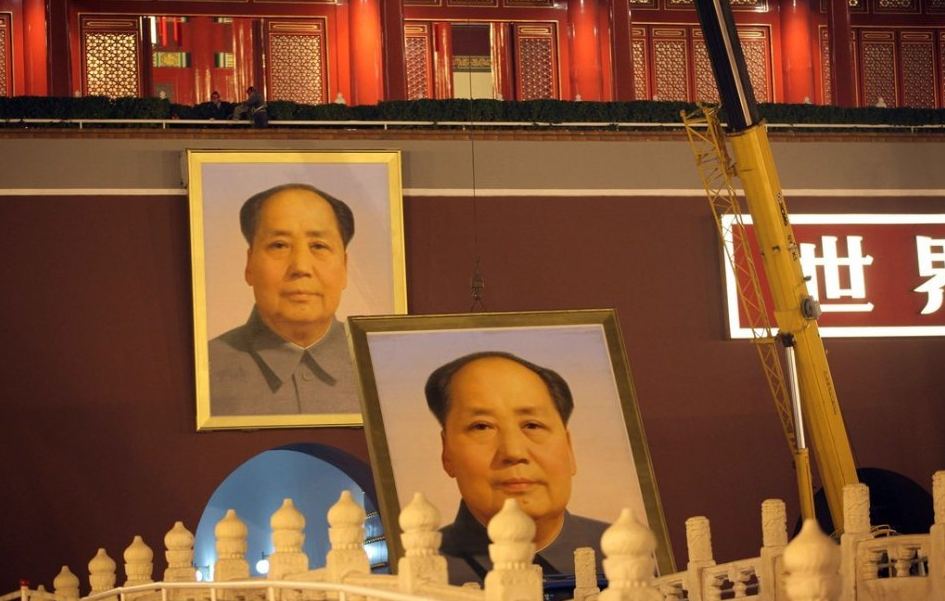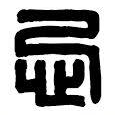Xi Jinping’s Empire of Tedium
二十八畫先生忌日
In 2024, we mark the anniversary of Mao Zedong’s death in the company of Dai Qing (戴晴, 1941-), a renowned writer, environmental activist and China’s first post-Mao historical investigative journalist. In interviews released by Voice of America (VOA) and Radio Free Asia (RFA) on 9 September 2024, Dai Qing discussed her account of the events of 1989 and her subsequent fate. We previously featured her book Deng Xiaoping in 1989 鄧小平在1989, a revised edition of Dai Qing’s account of the tumultuous events of 1989 and the mindset of Mao’s successor, published by Bouden House 博登書屋 in New York in April 2024 (see Dai Qing, a Former Person who Refused to be Silenced). For Wu Guoguang’s insightful introduction to the revised edition, see 吳國光,《鄧小平在1989》序, 議報,2024年9月18日.
The rubric of this commemoration of Mao’s death is 二十八畫先生忌日, ‘The Deathday of Mr Twenty-eight Brush-strokes’. The Chinese characters for Mao Zedong — 毛澤東 — are made up of twenty-eight strokes and Mao used this pen name when he published one of his first essays, A Study of Physical Education, in the June 1917 issue of La Jeunesse.
— Geremie R. Barmé
Editor, China Heritage
9 September 2024
***
Dai Qing in China Heritage
- Celebrating Dai Qing at Eighty, 1 October 2021
- Commemorating a Different Centenary — Dai Qing on the 1911 Revolution, 12 October 2021
- On China’s “Rise” and the Environment’s Decline — Celebrating Dai Qing at Eighty, 22 October 2021
- Dai Qing, Stefan Zweig & the Victory of the Defeated, 30 December 2021
Related Material
- 中共中央黨史和文獻研究院,永遠銘記毛澤東同志的豐功偉績和崇高風範,《求是》2023/24, 2023年12月16日
- 宋丹陽,唱紅歌 拜韶山 抓漢奸 南徵北戰 — 一個毛粉的戰鬥,亞洲自由電台,2023年12月22日
- Geremie R. Barmé, On Understanding Xi Jinping, The New York Times, 5 November 2015
- The Curse of Great Leaders — the Xi Jinping decade and beyond, Xi Jinping’s Empire of Tedium, 20 July 2022
- A Hosanna for Chairman Mao & Canticles for Party General Secretary Xi, Xi Jinping’s Empire of Tedium, 22 October 2022
- Geremie R. Barmé, Private Practice, Public Performance: The Cultural Revelations of Dr Li, The China Journal, No. 35 (January 1996): 121-127
- Geremie R. Barmé, Shades of Mao: The Posthumous Cult of the Great Leader, Armonk, NY: M.E. Sharpe, 1995
Two Interviews with Dai Qing
9 September 2024
“我對歷史的叩問是無盡的”
—— 戴晴
See also:
- Qian Lang, Dissident Chinese journalist works on her next book from exile in Thailand, Radio Free Asia, 14 September 2024
***
***
陰魂不散
‘At the center of the center of China lies a corpse that nobody dares remove.’
The line rings as true today in 2024, the 48th anniversary of Mao’s death, as it did when Behind the Forbidden Door: Travels in Unknown China, Tiziano Terzani’s colourful account of reporting from China, was published in 1985. It echoed a sentiment shared by many Chinese friends in the early 1980s.
Wu Zuguang (吳祖光, 1917-2003), playwright, film-maker and social critic expressed a similar idea when, over lunch in his Beijing home in the summer of 1980 he told me with considerable relish that only that morning at a meeting with pro-Mao Party elders at the Great Hall of the People he had referred to the deceased Great Helmsman as ‘Bandit Mao’ 毛賊 Máo zéi.
In the 1940s, Zuguang was an enthusiastic supporter of Mao and the Communists and, in late 1945, he was the young editor tasked with publishing ‘Snow’, Mao’s most famous poem, in the Chongqing press. The poem was widely seen as reflecting Mao’s imperial ambitions, something that Zuguang agreed with wholeheartedly (see For Truly Great Men, Look to This Age Alone for the text of the poem and a discussion of its significance).
Over lunch that day, and with his wife Xin Fengxia glaring disapprovingly, Zuguang went on to tell me when addressing the gathering at the Great Hall he had gestured towards Tiananmen Gate and declared unequivocally that as long as Mao’s portrait hung over Tiananmen Square and his embalmed corpse occupied its heart China ‘would never really know peace’ 永無寧日.

A few months earlier, in January 1980, the Sichuan writer Sun Jingxuan 孫靜軒 published a poem in which he had ominously warned that,
A loathsome spectre
Prowls the desolation of our land.
— adapted from The Unbuilt Wall of Sorrow
In Shades of Mao: the Posthumous Cult of the Great Leader (New York, 1995), my study of the post-1989 popular Mao revival, I observed that ‘Chairman Mao has entered the stream of Chinese history as man, icon, and myth, and there is little doubt that the Cult of the early 1990s is only the first of the revivals he will experience in what promises to be a long and successful posthumous career.’
Mao is the tutelary deity that animates and inspires Xi Jinping’s Empire of Tedium. In it, gestures towards tradition meld with a worldview of unabashed ambition and political hubris. Paranoid, pusillanimous, reactive and vindictive, the Xi-ist Zeitgeist has seen the re-animation of many traits of the Maoist past and po-faced self-righteous high dudgeon cloaks contemporary China.
From 2009, Party leaders promoted the idea that socialist China enjoyed a reputation for its ‘charisma, empathy and influence’ 感召力、親和力、影響力. They did so even as they demonstrated their approach to international affairs at the Copenhagen Climate Summit in December that year. Today, Xi’s China has oodles of rizz, but it’s all in negative territory and Beijing seems smugly satisfied that, for many, it is neither liked nor likeable.
***


